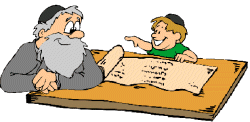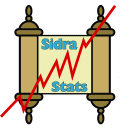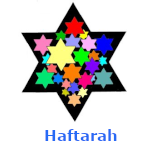Chayay Sarah
חַיֵּי שָׂרָה
Gen. 23:1 – 25:18
Sarah Dies
Sarah was 127 years old when she died, and she died in Kiryath-Arba — now called Hebron — in the land of Canaan.
Abraham came to mourn for Sarah and he wept for her, then he arose from beside his dead wife’s body and spoke to the Hittites. “I am an immigrant and I reside among you.Sell me property for a burial place among you, so that I can bury my dead, and not have her here right in front of me.”
The Hittites said to Abraham, “Listen to us, Sir. You are a prince of G-d among us. Bury your dead in the choicest of our burial places; none of us will withhold his burial place from you for burying your dead.”
Abraham rose up and bowed low to the people of the land, the Hittites, and he said to them, “If you really want to help me bury my dead, you must intercede for me with Ephron, son of Zohar. Speak to him for me, ask him to sell me the Machpelah cave that is at the edge of his field. Let him sell it to me, at the full price, for a burial site in your midst.”
[The Machpelah Cave has two levels (Mechpelah means double) and according to tradition, Adam and Eve had been buried there. Even today you can still visit it in Hebron.]
Ephron was present among the Hittites, so he answered Abraham, loud enough so that all could hear him, “I give you the field and I give you the cave that is in it; I give it to you in the presence of my people. Bury your dead.”
Then Abraham bowed low before the local people and spoke to Ephron so that all could hear, “If only you would hear me out! Let me pay the price of the land; accept it from me, that I may bury my dead there.”
Ephron replied to Abraham, saying to him, “My lord, listen to me! A piece of land worth four hundred shekels of silver — what is that between you and me? Go and bury your dead.”
Abraham knew what Ephron meant and accepted Ephron’s terms. Abraham paid out to Ephron the money that he had named in the hearing of the Hittites — four hundred shekels of silver at the going merchants’ rate.
And so Ephron’s field in Machpelah that adjoins Mamre– the field with its cave and all the trees anywhere within the confines of that field — became Abraham’s uncontested property, with all the Hittites who came to the city gate as eyewitnesses. And then Abraham buried his wife Sarah in the cave of the field of Machpelah, facing Mamre — now Hebron — in the land of Canaan. Thus did the field with its cave pass from the Hittites to Abraham, as a burial site.
Looking for Isaac’s wife
Abraham was now old, well advanced in years, and the Lord had blessed Abraham in all things. One day he called his senior servant, the one who was in charge of all that Abraham owned, and he said, “Put your hand under my thigh. I will bind you by an oath to HaShem, lord of heaven and earth, that you will not take a wife for my son from the daughters of the Canaanites among whom I live. Instead, you must go to my native land, my birthplace, and get a wife for my son Isaac.”
The servant said, “What if the woman does not consent to follow me to this land? Shall I then take your son back to the land from which you came?”
“Be very careful about this: On no account must you take my son back there!” Abraham said. “HaShem, the Lord of heaven who took me from my father’s house and from my native land, promised me on oath, saying, ‘I will give this land to your offspring’. HaShem will send an angel before you, and you will get a wife for my son from there. If the woman does not consent to follow you, you shall then be absolved of this oath to me, but no matter what, do not take my son back there.” So the servant put his hand under the thigh of his master Abraham and swore to him as told.
The servant took ten of his master’s camels and set out, taking with him all the best things his master owned, and he made his way to Aram-naharaim, to the city of Nahor. When he arrived, he let the camels rest on their knees by the well outside the city. It was evening time, the time when women come out to draw water. He prayed, “O HaShem, Lord of my master Abraham, grant me good fortune this day, and deal graciously with my master Abraham. Here I stand by the spring as the daughters of the townsmen come out to draw water. If I say to a girl, ‘Please, lower your jar that I may drink,’ and she replies, ‘Drink, and I will also water your camels’ — let her be the one whom You have designated for Your servant Isaac. Thereby shall I know that You have dealt graciously with my master.”
He had scarcely finished speaking, when Rebecca, (who was born to Bethuel, the son of Milcah the wife of Abraham’s brother Nahor), came out with her jar on her shoulder. She was a lovely. She went down to the spring, filled her jar, and came up. The servant ran toward her and said, “Please, let me sip a little water from your jar.”
“Drink, my lord,” she said, and she quickly lowered her jar upon her hand and let him drink. When he had drunk his fill, she said, “I will also draw for your camels, until they finish drinking.” Quickly emptying her jar into the trough, she ran back to the well to draw, and she drew for all his camels. The man, meanwhile, stood gazing at her, silently wondering whether the Lord had made his errand successful.
When the camels had finished drinking, the man took a gold nose-ring weighing a half-shekel, and two gold bands for her arms, ten shekels in weight. “Pray tell me,” he said, “whose daughter are you? Is there room in your father’s house for us to spend the night?”
“I am the daughter of Bethuel the son of Milcah, whom she bore to Nahor. There is plenty of straw and feed at home, and also room to spend the night.”
The man bowed low in homage to the Lord and said, “Blessed be HaShem, Lord of my master Abraham, who has not withheld His steadfast faithfulness from my master, for I have been guided on my errand by the Lord, to the house of my master’s kinsmen.”
The maiden ran to her mother and told her what had happened. Now, Rebecca had a brother whose name was Laban and Laban ran out to the man at the spring when he saw the nose-ring and the bands on his sister’s arms, and when he heard his sister Rebecca say, “Thus the man spoke to me.”
He went up to the man, who was still standing beside the camels at the spring. “Come in, O blessed of the Lord,” Laban said. “Why do you remain outside, when I have made ready the house and a place for the camels?” So the man entered the house, and the camels were unloaded. The camels were given straw and feed, and water was brought to bathe his feet and the feet of the men with him. But when food was set before him, he said, “I will not eat until I have spoken my piece.”
“Speak, then,” replied the host.
“I am Abraham’s servant,” the old man began. “The Lord has greatly blessed my master, and he has prospered. HaShem has given him sheep and cattle, silver and gold, male and female slaves, camels and donkeys. Sarah, my master’s wife, bore my master a son in her old age, and he has assigned to him everything he owns. Now my master has bound me by an oath, made me swear, saying, ‘Do not take as a wife for my son one of the daughters of the Canaanites in whose land I dwell. You must go to my father’s house, to my kindred, and there get a wife for my son.’ And I said to my master, ‘But what if the woman does not follow me?’ And he said to me, ‘HaShem, with whom I have walked and whose ways I have followed, will send His angel with you and make your errand successful, and you will get a wife for my son from my kindred, from my father’s house. Thus only shall you be freed from my adjuration: if, when you come to my kindred, they refuse you — only then shall you be freed from my dread oath.’
“Now today, I came to the spring, and I prayed, “Oh, HaShem, Lord of my master Abraham, if you would indeed grant success to the errand on which I am engaged! As I stand by the spring of water, let the young woman who comes out to draw and to whom I say, ‘Please, let me drink a little water from your jar,’ and who answers, ‘You may drink, and I will also draw for your camels’ — let her be the wife whom HaShem has decreed for my master’s son.’ I had scarcely finished praying in my heart, when Rebecca came out with her jar on her shoulder, and went down to the spring and drew. And I said to her, ‘Please, give me a drink.’ She quickly lowered her jar and said, ‘Drink, and I will also water your camels.’ So I drank, and she also watered the camels.
“I inquired of her, ‘Whose daughter are you?’ And she said, ‘The daughter of Bethuel, son of Nahor, whom Milcah bore to him.’ And I put the ring on her nose and the bands on her arms, and I bowed low in homage to HaShem, the Lord of my master Abraham, who led me on a true path to get the daughter of my master’s brother for his son. And now, if you mean to treat my master with true kindness, tell me; and if not, tell me also, that I may turn right or left.”
Then Laban and Bethuel both spoke up, “The matter was decreed by the Lord; we cannot say anything to you, bad or good. Here is Rebecca before you; take her and go, and let her be a wife to your master’s son, as the Lord has spoken.”
When Abraham’s servant heard their words, he bowed low to the ground before the Lord. He brought out silver and gold jewelry and some articles of clothing, and gave them to Rebecca. He gave presents to her brother and her mother, and then he and the men with him ate and drank, and they spent the night.
When they arose next morning, he said, “Give me leave to return to my master.” But Laban and his mother said, “Let the girl remain with us for awhile longer, then she can go.”
He said to them, “Don’t delay me, now that the Lord has made my errand successful. Let me leave that I may go to my master.”
“Let’s call her and ask her personally,” they replied. They summoned Rebecca and said to her, “Do you want to go with this man?” And she said, “I will go.”
So they let Rebecca go, but first they blessed Rebecca with the same blessing that is said to brides to this day, “Oh, sister! May you grow into thousands of myriads; may your offspring inherit the gates of their foes.”
Then Rebecca and her nurse and her maids arose, mounted the camels, and followed the servant, leaving her family behind.
Now, Isaac had just returned from the vicinity of Beer LaChai Roi. He was living, at that time, in the Negev area. That evening, he went out walking in the field to meditate and, looking up, he saw camels approaching.
When Rebecca raised her eyes, she saw Isaac and she almost fell from her camel. She asked the servant, “Who is that man walking in the field toward us?” and the servant said, “That is my master.” So she took her veil and covered herself.
The servant told Isaac all that had happened. Then Isaac brought Rebecca into the tent that had belonged his mother Sarah, and he married Rebecca. She became his wife and he loved her, and thus Isaac was consoled for the loss of his mother.
Abraham’s Life
Abraham married another woman, whose name was Keturah. She bore him Zimran, Yakshan, Medan, Midian, Ishbak, and Shuach.
Yakshan was the father of Sheba and Dedan, and Dedan’s sons were Asshurim, Letushim, and Leummim. Midian’s children were called Ephah, Epher, Enoch, Abida, and Eldaah. All these were descendants of Keturah.
Abraham willed all that he owned to Isaac. To the sons of the concubines he had taken, Abraham also gave gifts. Then, while he was still living, he sent them eastward, to the Arabian peninsula, away from his son Isaac.
This, then, is the account of Abraham’s life. He lived a total of 175 years, and Abraham breathed his last, dying at a good ripe age, old and contented, and he was gathered to his people [as HaShem had promised him in Lekh Lekha 15:15]. His sons, Isaac and Ishmael, buried him in the cave of Machpelah, in the field that he’d bought from Ephron, son of Zohar the Hittite. There, Abraham was buried, with his wife Sarah.
Isaac and his descendants
After Abraham died, HaShem blessed Isaac, his son who settled near Beer LaChai Roi.
These are the chronicles of Ishmael, Abraham’s son, whom Hagar the Egyptian, Sarah’s slave, bore to Abraham.
These are the names of the sons of Ishmael, by their names, in the order of their birth: Nebayoth (Ishmael’s first-born), Kedar, Adbeel, Mibsam, Mishma, Duma, Masa, Hadad, Tema, Yetur, Naphish, and Kedmah. These are the sons of Ishmael and these names were given to their villages and encampments: twelve chieftains of as many tribes.
These were the years of the life of Ishmael: 137 years, then he breathed his last and died, and was gathered to his people.
His descendents lived in the area from Havilah, to Shur, which borders on Egypt, all the way to Assyria. They overran all their brethren.
Haftarah Connection

I Kings 1.1-31
Abraham is getting old in the beginning of the parsha and is concerned with his lineage and securing it for the future. When Isaac gets married he sends the rest of the children away and lets it be known that he will be the heir.
In the Haftarah King David is getting old and wants to make sure that the right person assumes the position of king after him. David assures Bat Sheva that her son, Solomon, would be king after he died. He was the right person for the job.
Sidra Stats

- Fifth of 54 Sedras in the Torah
- Written on 171 lines in the Sefer Torah
- 105 P’sukim (verses)
- 1,402 words
- 5,314 letters
Next week’s Parashat: Toledot


